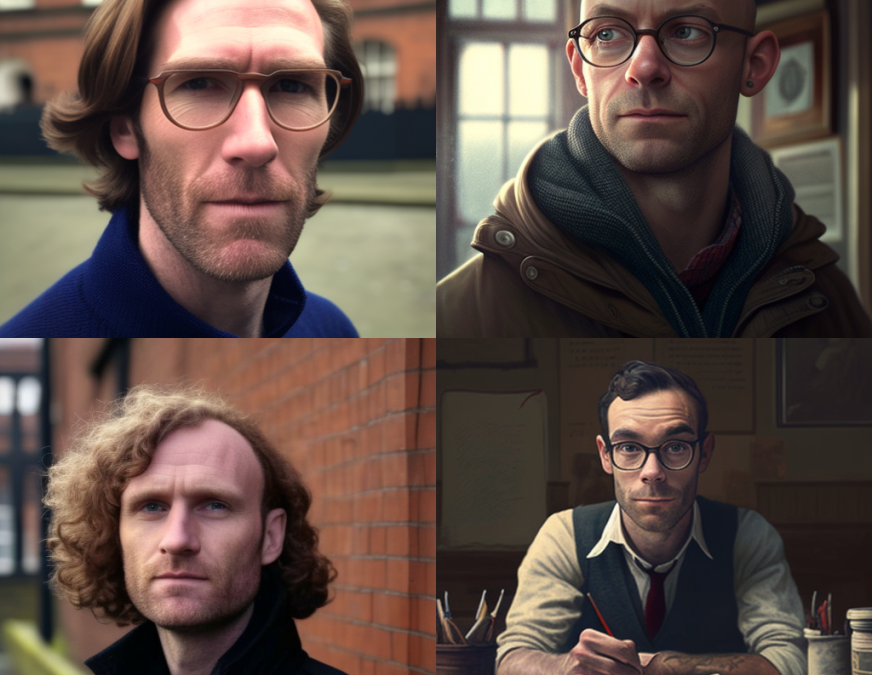Frank Pavich wrote a cool piece in the New York Times last weekend. He used an AI bot to imagine a film that doesn’t exist. The images are incredible. My jaw dropped.
Then I logged in to the same bot and asked it to imagine me, or, a “43-year-old British writer.” It came up with the image above, which, to be fair, looks a bit like I do. Newsflash: AI assumes 43-year-old British writers are all white men. They also assume we like bad light and redbrick backgrounds. Or that we look like we spend a lot of time in the pub (outrageous!). But the overwhelming vibe I get from these images is a lack of imagination. It’s a dryness. A lack of creativity. And if there’s one thing that makes a piece of writing worth reading, it’s the spark of imagination.
There’s a rich seam of articles coming out right now saying AI is going to change the way the world works. College students will use it to cheat, the articles say. You’ll be able to make PowerPoints without trying very hard. You know. But for real, I have zero fear that as a result, my business is going to dry up. Yes, it might change a bit. There’ll be more emphasis on client service and on listening to exactly what the client wants. There’ll be more emphasis on scoping the jobs right, too. But to be fair, I’ve found that those things have always been what make my clients happiest. They care less that I can type at 100 words a minute, or that I can churn out articles in their voice to order. They’re more concerned, and right to be, that I show up and pay attention. They want someone to partner with them in figuring out how best to express themselves. When you work with a bot, the only thought partnership you get is a prompt. Then you write the word “/imagine” and the output you need. I tried asking the bot to reimagine me as looking a bit more optimistic. Then I realized I should ask the bot to imagine me as if I played squash often. That’s one of the things that gives me energy and optimism, I figured. It gave me:

Your content goes here. Edit or remove this text inline or in the module Content settings. You can also style every aspect of this content in the module Design settings and even apply custom CSS to this text in the module Advanced settings.


